Machine Learning and Monte Carlo
Monte Carlo Methods in Radiotherapy Innovations
Multiscale Treatment Planning Software
Monte Carlo based Treatment Planning in Brachytherapy
Monte Carlo Methods in Nuclear Medicine
Monte Carlo for External Photon and Electron Beam Dose Calculations in Radiotherapy
The Role of Monte Carlo Methods in Radiobiological Modelling of Radiotherapy Outcomes
Faculty of Engineering and Information Sciences, University of Wollongong, Australia
Monte Carlo in Microdosimetry

Iwan Kawrakow
Senior Director of Science, ViewRay Incorporated, USA
Parallel Monte Carlo Implementations
The Role of Monte Carlo in Medical Imaging
The Role of Monte Carlo Methods in Dosimetry
The Role of Monte Carlo in Source and Patient Characterization in Brachytherapy
Monte Carlo Codes, Physics, and Data
Modelling Low-energy Electron Transport: Departures from Classical Monte Carlo
The Role of Monte Carlo in the Validation and Commissioning of Advanced Dose Calculation Algorithms
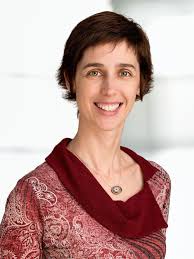
MCMA & ICCR Keynote Speaker
Joelle Pineau is an Associate Professor and William Dawson Scholar at McGill University where she co-directs the Reasoning and Learning Lab. She also leads the Facebook AI Research lab in Montreal, Canada. She holds a BASc in Engineering from the University of Waterloo, and an MSc and PhD in Robotics from Carnegie Mellon University.
Dr. Pineau’s research focuses on developing new models and algorithms for planning and learning in complex partially-observable domains. She also works on applying these algorithms to complex problems in robotics, health care, games and conversational agents.
She serves on the editorial board of the Journal of Artificial Intelligence Research and the Journal of Machine Learning Research and is currently President of the International Machine Learning Society. She is a recipient of NSERC’s E.W.R. Steacie Memorial Fellowship (2018), a Fellow of the Association for the Advancement of Artificial Intelligence (AAAI), a Senior Fellow of the Canadian Institute for Advanced Research (CIFAR) and in 2016 was named a member of the College of New Scholars, Artists and Scientists by the Royal Society of Canada.
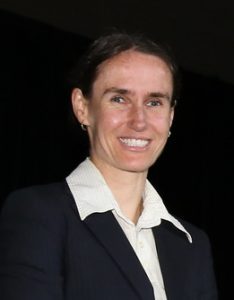
MCMA Keynote Speaker
The research of Dr. Bazalova-Carter’s X-ray Cancer Imaging and Therapy Experimental (XCITE) Lab revolves around Monte Carlo simulations and experiments with kilovoltage x-rays. Apart from research in small animal radiotherapy, her lab focuses on investigations of novel x-ray imaging modalities, such as x-ray fluorescence CT and spectral CT, and novel x-ray radiotherapy techniques, such as cost-effective kilovoltage arc therapy.
Dr. Bazalova-Carter has received research funding in the United States and Canada. She is the Chair of the AAPM Working Group on Small animal radiotherapy devices and a Co-Chair of the AAPM Task Group on the Guidelines for accurate dosimetry in radiation biology experiments. Dr. Bazalova-Carter is a member of the AAPM Imaging Physics Committee and of the Board of Associate Editors for Medical Physics. She is the recipient of the 2013 AAPM Jack Fowler Junior Investigator “Award and the 2018 AAPM John S. Laughlin Young Scientist Award. She is a certified Medical Physicist by the American Board of Radiology.
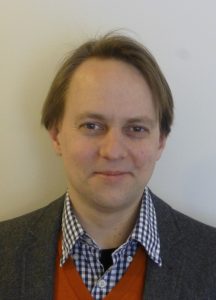
MCMA Keynote Speaker
Dr. Schuemann is an Assistant Professor of Radiation Oncology and the Head of the Multi-scale Monte Carlo Modeling Lab at Massachusetts General Hospital and Harvard Medical School.
Dr. Schuemann’s research revolves around the transport and simulation of radiation for cancer treatment, in particular for proton therapy. Dr. Schuemann is one of the core developers of the TOPAS (Tool for Particle Simulations) simulation framework for clinical Monte Carlo simulations. He further heads the TOPAS-nBio collaboration, an extension to TOPAS to investigate the connection between physics and biology at the cell and sub-cellular scale. Dr. Schuemann’s experimental research focusses on new technologies to advance radiation therapy, e.g. gold nanoparticles and extreme dose rate irradiations (FLASH).
Dr. Schuemann was awarded a German Academic Exchange Service (DAAD) scholarship for his PhD research in particle physics and received the Feodor Lynen fellowship from the Alexander von Humboldt-Foundation and a fellowship from the Japanese Society for the Promotion of Science (JSPS) for his postdoctoral studies. In 2010 Dr. Schuemann joined the team at MGH to work on the TOPAS Monte Carlo system and later the extension to TOPAS-nBio. His work was recognized in 2018 with the Michael J. Fry award by the Radiation Research Society (RRS), and in late 2018, he received the Damon Runyon-Rachleff Innovation Award. In addition, Dr. Schuemann is on the editorial board of Cancer Nanotechnology and on the governing board of the RRS.
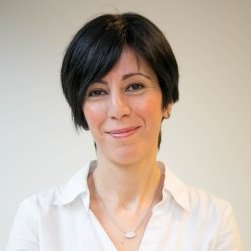
MCMA Plenary Speaker
Shirin Abbasinejad Enger is an Assistant Professor in the Gerald Bronfman Department of Oncology, Division of Radiation Oncology and the head of the Novel Patient-Specific Brachytherapy and Detector Technology lab at McGill University. She received her PhD degree from Uppsala University in 2009, and from 2009 to 2011 was a postdoctoral fellow at Université Laval. She joined McGill University in 2014.
Dr. Abbasinejad Enger research involves development of applied technology and addressing current limitations in radiation oncology and imaging. Her research group has developed a novel radiation source and a radiation delivery system, AIM-Brachy, that enables intensity modulated brachytherapy. One of the detectors developed by her group, BetaSense, is currently being tested in several university hospitals and will be used in upcoming clinical trials. In addition, Dr. Abbasinejad Enger and her group have developed a complete Monte Carlo based treatment planning system, RapidBrachyMCTPS that will be released as an opensource code in 2019, as well as a Monte Carlo based simulation package for microdosimetry applications.
Dr. Abbasinejad Enger has several patents and has received competitive funding to develop her innovations from proof of concept to clinical trials. In 2018, her AIM-Brachy project was selected by the European Society for Radiotherapy and Oncology as one of five innovative projects in the research area of brachytherapy. The project was published in the ESTRO conference report “Report on ESTRO 37: Innovation for value and access”. She has received multiple awards from the Uppsala Innovation Center for her outstanding research which has commercial development opportunities in the field of Monte Carlo calculations in medical physics. Dr. Abbasinejad Enger is the recipient of the Moses and Sylvia Greenfield Award for the best paper published in Medical Physics in 2014. She is a member of AAPM/ESTRO/ABG Working Group on Model-Based Dose Calculation Algorithms in Brachytherapy.
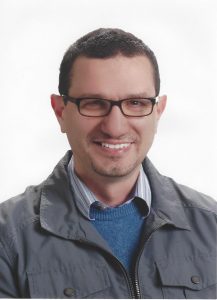
ICCR & MCMA Invited Speaker
Issam El Naqa received his BSc (1992) and MSc (1995) in Electrical and Communication Engineering from the University of Jordan, Jordan. He worked as a software engineer at the Computer Engineering Bureau (CEB), Jordan, 1995-1996. He was awarded a DAAD scholarship to Germany, where he was a visiting scholar at the RWTH Aachen, 1996-1998. He completed his PhD (2002) in Electrical and Computer Engineering from Illinois Institute of Technology, Chicago, IL, USA, receiving highest academic distinction award for his PhD work. He completed an MA (2007) in Biology Science from Washington University in St. Louis, St. Louis, MO, USA, where he was pursuing a post-doctoral fellowship in medical physics and was subsequently hired as a Instructor (2005-2007) and then an Assistant Professor (2007-2010) at the departments of radiation oncology and the division of biomedical and biological sciences and was an adjunct faculty at the department of Electrical engineering. He became an Associate Professor at McGill University Health Centre/Medical Physics Unit (2010-2015) and associate member of at the departments of Physics, Biomedical Engineering, and Experimental medicine, where he was a designated scholar.
He is currently an Associate Professor of Radiation Oncology at the University of Michigan at Ann Arbor and associate member in Applied Physics. He is a certified Medical Physicist by the American Board of Radiology.
He is a recognized expert in the fields of image processing, bioinformatics, computational radiobiology, and treatment outcomes modelling and has published extensively in these areas with more than 150 peer-reviewed journal publications and 3 edited textbooks. He has been an acting member of several academic and professional societies. His research has been funded by several federal and private grants and serves as a peer-reviewer and editorial board member for several leading international journals in his areas of expertise.
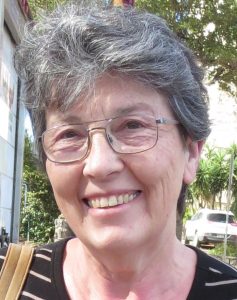
MCMA Invited Speaker
Anna Celler is a Professor Emeritus in the Department of Radiology at the University of British Columbia (UBC) Vancouver, Canada. She is also the Head of the Medical Imaging Research Group (MIRG) associated with the Vancouver Coastal Health Research Institute, an Adjunct Professor at the Department of Mathematics, Simon Fraser University, and an Associate Member at the Department of Physics and Astronomy, UBC. She has been awarded several research grants (NSERC, CIHR, NRC-ITAP, NIH and others), and has single-handedly created a medical imaging research program that is now into its third decade.
Dr. Celler’s main expertise is in nuclear and medical physics, quantitative and dynamic image reconstruction and analysis, dosimetry for radionuclide therapies, cyclotron production of medical radioisotopes, and the use of sophisticated mathematics for different aspects of imaging. She is the author of more than 350 peer-reviewed articles, abstracts and book chapters and serves on many committees and review boards.
In 2018, Dr. Celler was awarded the 2018 COMP Gold Medal by the Canadian Organization of Medical Physicists in recognition of her contributions to medical physics, her leadership in various medical physics organizations, and her role in guiding the professional and career development of junior medical physicists in Canada. Dr. Celler’s other prestigious awards include the NSERC Brockhouse Canada Prize for Interdisciplinary Research in Science and Engineering (2015) and the World Council on Isotopes President’s Award for TRIUMF-ITAP Consortium (2017).

MCMA Invited Speaker
Dr. Chetty is Professor and Division Head of Medical Physics in the Department of Radiation Oncology at Henry Ford Hospital, a position in which he has served since 2007. He oversees the operations for a large group of medical physicists (>30) working to provide routine clinical medical physics services, and actively engaged in research development. During his PhD at UCLA, Dr. Chetty specialized in the area Monte Carlo-based dose calculations for lung cancer. When he joined the University of Michigan in 2000, he developed a strong research track record in the area of dose calculations and motion management for patients with lung cancers. In 2005, he was awarded a NIH/NCI R01 grant to investigate correlations of dose with outcome for patients with lung cancers. He served as the Chair of the AAPM Task Group No. 105 on the use of Monte Carlo methods for radiotherapy dose calculations in 2007, and more recently has been actively engaged in the efforts of AAPM Task Group No. 157 on beam modelling for Monte Carlo dose calculations. Dr. Chetty has amassed a significant amount of experience in the area of dose calculations, motion management and image-guided radiation therapy (IGRT) for the treatment of lung cancers. Over the past 10 years his research has focused on the investigation of deformable image registration and dose accumulation for adaptive radiotherapy. He is also involved in research pertaining to quantitative image analysis (in particular, radiomics) as well as the use of artificial and augmented intelligence for various tasks in radiotherapy, such as automated contouring. Dr. Chetty has published over 150 peer-reviewed articles and is Fellow of both AAPM and ASTRO.
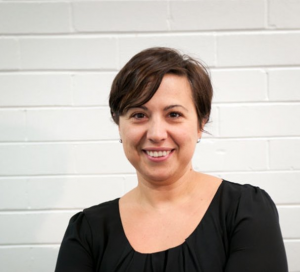
MCMA Invited Speaker
Susanna Guatelli is Associate Professor at the School of Physics, University of Wollongong, NSW, Australia. She is Theme Leader in “Monte Carlo Simulations” at the Centre for Medical Radiation Physics (CMRP). She has a PhD in physics, awarded in 2006 at the University of Genova, Italy, after a Master in Physics in 2002, awarded in the same University.
Dr. Guatelli has extensive expertise in the use of Geant4 from dosimetry to micro- and nano-dosimetry, performing several studies from the verification of clinical Treatment Planning Systems to the characterization and optimization of silicon microdosimeters in radiation protection and hadron therapy Quality Assurance. She has extensive expertise in the characterization of beamlines used in hadron therapy (BNCT, proton and carbon ion therapy), conventional X-ray radiotherapy and Microbeam Radiation Therapy by means of Geant4. Since 2005 she contributes to the development and validation of Geant4 for medical physics applications, including the Geant4-DNA extensions. In addition, Dr. Guatelli has expertise in the theoretical characterization of the radio-enhancement in X-ray radiotherapy by means of high atomic number nanoparticles. In this respect, in 2017 she was awarded with an Australian Research Council Discovery Project Grant (2017-2019) to develop in Geant4-DNA track structure physics models describing more accurately electron processes in gold nanoparticles.
Since 2018 Dr. Guatelli is Coordinator of the Geant4 Advanced Examples Working Group, Coordinator of the Geant4 Medical Physics Benchmarking Group (G4MSBG) and member of the Geant4 Steering Board. She regularly organizes international Geant4 short courses and Monte Carlo workshops at the UOW, focused on medical physics applications.
Dr. Guatelli has been chair/co-chair of several international workshops and conference sessions dedicated to Monte Carlo codes applied to medical physics. In 2017 she was selected as Australian Chair of the Symposium dedicated to the Australia Japan Emerging Research Leaders Exchange Program, administered by the Australian Academy of Technological Sciences and Engineering (ATSE) and the Engineering Academy of Japan (EAJ).
Dr. Guatelli is Associate Editor of Physica Medica and of Applied Radiation and Isotopes. She is member of the Australian Institute of Physics. In 2016 she was selected as researcher profile showcased in the “Women of Impact” publication of the University of Wollongong.
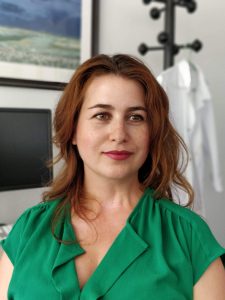
MCMA Invited Speaker
Lydia Maigne is associate professor at University Clermont Auvergne (UCA, http://see.lpc.uca.fr) since 2007. She is a team leader in modelling and simulations in medical physics at Health, Environment and Energy Department of the Physics Laboratory of Clermont (CNRS-IN2P3). She obtained a PhD in particle physics in 2005, she has been qualified as medical physicist in 2007.
Dr. Lydia Maigne has developed an expertise in the fields of e-science through the development of applications and services relevant to imaging and healthcare in grid and cloud environments. Active member in European grid projects (DataGrid, EGEE II and III and EGI), in 2011, she received a grant from the French National Research Agency for the deployment of a distributed infrastructure for epidemiology studies and medical data transfers related to breast and colon cancers.
Involved in the OpenGATE collaboration (www.opengatecollaboration.org) since the beginning of her PhD in 2003; she is participating to the development and validation of multi-scale simulations using the open source GATE platform based on the Geant4 toolkit in the field of radiation therapy physics and imaging. She became a member of the steering committee in 2008 and has been elected as the new spokesperson of the collaboration in 2018. She has been awarded twice in 2009 and 2015, with the other collaboration members, for their two collaboration papers that have received the largest number of citations in the preceding five years in the Physics in Medicine and Biology journal.
She started her research career in validating Geant4 charged particle processes in external radiation therapy and brachytherapy. In 2011 and 2013, she received two grants from the French Cancer Research National Program to improve dosimetry simulations associated to innovative radiopharmaceuticals in internal radiation therapy before studying the potentializing effect of gadolinium nanoparticles for particularly high resistant cancer cells. To that purpose, she got involved with biologists, chemists and computer scientists into the developments of programs to tackle how energy depositions are allocated to biological endpoints (cells, DNA) when using clinical and low-energy radiation beams. To that purpose, her group developed the PDB4DNA (http://pdb4dna.in2p3.fr) and CPOP (http://cpop.in2p3.fr) Geant4 applications that have been used to validate low-energy processes within the Geant4-DNA project (http://geant4-dna.org).
In 2017, she focused on the deployment and validation of biophysical models into the GATE platform for the simulation of the biological dose in ion beam therapy. Through her involvement in an Excellence Laboratory dedicated to Physics, Radiobiology, Medical Imaging and Simulation (https://primes.universite-lyon.fr), her group is collaborating with researchers (IPNL-IN2P3) and clinical partners (MedAustron in Austria, Centre Antoine Lacassagne in France) involved in hadrontherapy.
Lydia Maigne dedicates part of her time in organizing practical tutorials using the GATE platform in the Medical Physics Graduate Program at UCA and international workshops. As new spokesperson of the OpenGATE collaboration, she has made one of her priority to increase the organization of dedicated schools and workshops together with e-learning courses to improve the learning of medical physics through the GATE platform.
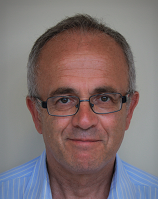
MCMA Invited Speaker
Born in 1949 in Manchester UK. He studied physics at Oxford University and received his PhD at Edinburgh University, on Monte Carlo methods applied to the chemical and ionometric dosimetry of megavoltage electron and photon beams. Dr. Nahum worked as researcher and lecturer on various aspects of radiation dosimetry and on radiobiological modelling and treatment-plan bio-optimization at Umeå University (Sweden), National Research Council of Canada, Ottawa (3-month sabbatical), Institute of Cancer Research (London), Fox-Chase Cancer Center (Philadelphia), Reggio Emilia (Italy), and Clatterbridge Cancer Centre (CCO – near Liverpool). He published around 140 peer-reviewed papers, and co-edited/co-wrote seven books including ‘Handbook of Radiotherapy Physics’ with Philip Mayles and Jean-Claude Rosenwald (Taylor & Francis, 2nd Edition due 2019) and ‘Fundamentals of ionizing Radiation Dosimetry’ (Wiley, 2017) with Pedro Andreo, David Burns and Jan Seuntjens. Dr. Nahum supervised 18 PhD theses; set up and taught professional-level courses on radiotherapy physics (ICR/Royal Marsden) and radiobiology and radiobiological modelling (Clatterbridge). In addition, he created and distributed free radiobiological-modelling software BIOPLAN with Beatriz Sanchez-Nieto and BioSuite with Julian Uzan. He retired in 2015.

MCMA Invited Speaker
Brigitte Reniers is an Associate Professor in the Nuclear Technology Center in Hasselt University in Belgium since 2016. She obtained her PhD in Medical Physics in 2005 from the Catholic University of Louvain. Her PhD research focused on Monte Carlo studies of dosimetric and microdosimetric properties of low energy photon sources.
Dr. Reniers has been working most of her career both as a researcher and as a clinical medical physicist. Consequently, her research interests cover not only brachytherapy, which has always stayed her main topic, but also research problems that where identified from her clinical tasks such as the evaluation of a Monte Carlo algorithm for electron planning or the dose accumulation from different fractions in brachytherapy. She has authored more than 50 peer-reviewed journal publications and book chapters.
Dr. Reniers is since 2012 in charge of an audit in external beam for VMAT, arc therapy and stereotaxy for Belgium financed by the Belgian Federal Public Service. This audit is based on the use of alanine electron paramagnetic detector and Gafchromic films. Since her appointment in Hasselt University she is also working on experimental microdosimetry.
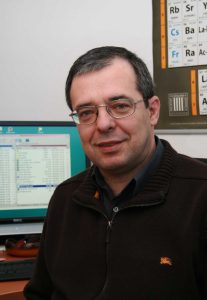
MCMA Invited Speaker
Francesc Salvat is the leader of the group at the University of Barcelona that develops and maintains the general-purpose electron-photon transport code PENELOPE (an acronym for PENetration and Energy LOss of Positrons and Electrons), which has found a wide variety of applications in radiation metrology, dosimetry, radiotherapy, electron microscopy, x-ray source design, etc. The first version of this program was released in 1996, and since then the group has progressively improved the physics interaction models and the numerical sampling algorithms. Dr. Salvat has specialized in the development of theoretical models for the interactions of radiation with matter, and on the production of reference databases calculated from these models. His group has produced a database for elastic scattering of electrons and positrons (which is distributed as part of the Report 77 of the ICRU, and as the NIST Standard Reference Database 64), a database of cross sections for ionization of atoms by electron and positron impact (distributed as the NIST Standard Reference database 164), as well as other databases that are part of the PENELOPE code system.
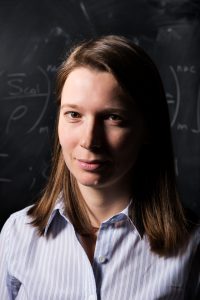
MCMA Invited Speaker
Rowan Thomson is an Associate Professor and Canada Research Chair in the Department of Physics at Carleton University. She holds a BSc Double Honours Mathematics and Physics from Carleton University (2003). Her PhD research was in theoretical high-energy physics (Superstring Theory) at Perimeter Institute and the University of Waterloo, and was awarded Waterloo’s Pearson Medal (2007). Post-PhD, Dr. Thomson’s research has focused on computational radiotherapy physics; she became a faculty member at Carleton in 2010.
Dr. Thomson’s research involves the development and application of computational techniques to study the interactions of radiation with matter. She is a leader in the development and application of advanced Monte Carlo dose calculation algorithms for brachytherapy, most recently developing and releasing egs_brachy as open-source code. In complement, she is very active in developing multi-scale simulation techniques, from patients to cells to subcellular length scales, and applying these to investigate novel treatment approaches and understand measurements of cellular radiation response.
Dr. Thomson has been recognized through awards including: Polanyi Prize for Physics (2011), Canada Research Chair (2013), and Ontario Early Researcher Award (2015). She is a member of the AAPM’s Therapy Physics Committee and of the Board of Associate Editors for Medical Physics. She is co-chair of AAPM TG-221 Ocular Brachytherapy and a member of other task and working groups including AAPM TG-129, joint AAPM/ESTRO/ABG TG-186 and its successor the Working Group on Model-Based Dose Calculation Algorithms in Brachytherapy.
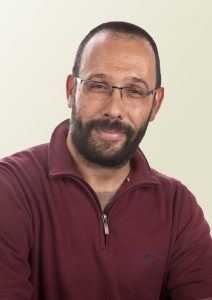
MCMA Invited Speaker
Javier Vijande is a professor at the Molecular, Nuclear, and Atomic Physics department of the University of Valencia, Spain. He holds a PhD in physics from the University of Salamanca where he was an assistant Professor before moving to Valencia to occupy a researcher position in the Theoretical Physics department.
His research focus has always been linked to computation-intensive calculation techniques. In the beginning of his scientific career he worked in developing numerical methods to approach the few- and many-body problems in hadronic physics. Nowadays, his main research interests are Monte Carlo simulations in the field of medical physics and its clinical applications.
Professor Vijande serve as a member of the American Association of Physicist in Medicine (AAPM) Brachytherapy Subcommittee and Brachytherapy Source Registry Work Group, and as Chair of the Working Group on Model-Based Dose Calculation Algorithms in Brachytherapy.